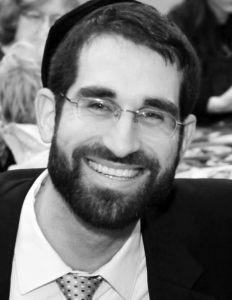How sowing in tears reaps in joy

By Rabbi Joshua Marder
I told my wife I was going to bed early last Tuesday night.
I was wrong. At 10:30 p.m., my anticipated bedtime, I found myself in the car taking one of my kids to the ER.
It was a beautiful and extremely unpleasant experience.
No one enjoys seeing their loved one in pain, and no parent — especially me — enjoys missing their bedtime, but those painful moments are often precious moments.
Furthermore, although discomfort comes along with that pain, it is also an honor, a pleasure, and an opportunity to be there for our loved ones when they need us.
ER, pain, pleasure: how does that work? I’ll explain.
Arriving at the ER represents entering an environment that is unknown, a situation from which it is unclear what to expect, frightfully confronted with mortality, and a strong potential for physical and/or emotional pain.
In other words, it’s a recipe for deep primal fear. Science and experience have taught us that primal fear turns on a deeply rooted survival system within us.

We feel it in our nervous system through an adrenaline rush and a raised heart rate as anxiety and fear take over. It’s a survival mechanism, and we all have it.
In the midst of that scary space, a voice within us calls out, “Don’t be alone in this! Go find someone to support you! Quick!”
I saw that voice in my daughter’s eyes as we were told that she needed stitches. Paternal nature took over as we sat there on the hospital bed, foreheads touching and holding hands, while her wound was being stitched up.
As I was comforting her through her painful and scary moment, I couldn’t help but realize that we were profoundly bonding.
It says in Psalm 126, “Those who sow in tears will reap in joy.” The simple understanding of the verse is meant to comfort us by saying to those who are sad and tearful now, there will be times of joy to come.
However, perhaps we can understand this verse in another way.
We are built to bond, and our greatest joy is the joy of connection. Whether that connection is through bonding with our spouse, parents, children, or the Almighty, it ignites within our body and soul feelings of tremendous comfort, satisfaction, and joy.
The opportunities to experience that joy of connection come from the bonding experiences we have in our most vulnerable spaces, often moments of fear or sadness.
Perhaps we can explain: “Those who sow in tears,” refers to those who are willing to feel their vulnerable parts and reach out for connection in their times of need, while the words, “will reap in joy,” indicate that they will have the great joy of an intimate bond of closeness.
We all have times where we get scared and have an inner voice saying to us, “Don’t be alone in this! Go find someone to support you!”
At first, shame or past wounds may stop us from reaching out for the comfort and connection we need in those moments.
We might even fear that sharing our fears with our loved ones could push them away.
The truth is that the vulnerability of sharing our fears allows our relationships to thrive and survive. We take a risk when we reach out to our loved one and say, “I need you. I’m scared and need you to be here with me. I need you to comfort me.”
But through that risk of sharing, we open the door to receive their comforting message, “I’m here for you. I’m with you. I’ll support you.”
There’s nothing in the world that bonds two individuals more than experiencing their support and knowing that they are there for you.
Though none of us seeks scary feelings, we can learn to open up to them as opportunities.
Those moments of fear and vulnerability are where we learn to connect with our loved ones, whether that means reaching out or being there for others when they reach out to us.
We can use them as the vibrant breeding ground where relationships grow, thrive, and flourish.
Being in the ER was not pleasant. Missing my bedtime was upsetting. But being there for my child to know that I’m there for her was precious.
Rabbi Joshua Marder practices both couples’ and family therapy in the Chicago area and serves on the Chicago Center for Emotionally Focused Therapy board.
To read the complete November 2019 Dayton Jewish Observer, click here.

